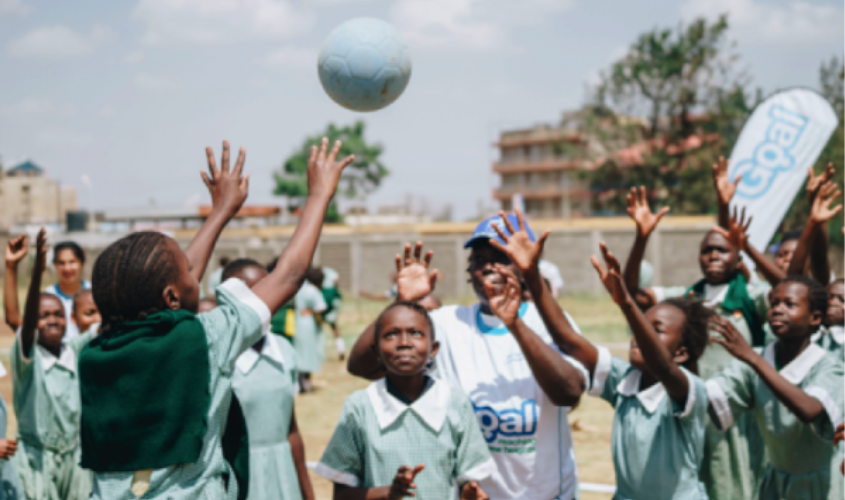Bring girls to the front and they’ll leave no one behind

Nancy[1] joined the Goal programme in Nairobi, Kenya after being referred by a teacher from her children’s home. Now 18 years old, Nancy studies information technology and is on track to pursue a career in computer science:
“I walk around my neighbourhood proudly not because I am successful, but because I am on the journey of success…I know and value my worth. I choose who to associate with because I have my own goals and there’s a place I want to reach in life…There are always obstacles in life but we have to keep focus…and attain our dreams.”
The theme of the 2018 Day of the African Child is to “Leave No Child Behind for Africa’s Development”. Girls make up a disproportionate number of children left behind. There are 9 million girls compared to 6 million boys of primary school age in Africa who will never go to school.[2] A quality academic education is part of what is needed to support girls. Alongside, support is needed to tackle social norms that limit girls’ opportunities and put the words can’t, shouldn’t and won’t at the forefront of girls’ minds. Only 20 percent of donor funding for gender equality, however, is used to focus on girls and young women.[3] There’s a key role for business leaders to commemorate this day by supporting quality education and opportunity for girls.
Our approach to girls’ empowerment
Standard Chartered, a member of the Global Business Coalition for Education, started the Goal programme in 2006 to support girls to develop essential life skills – precursors to economic independence. As of this year, Goal has been implemented in over twenty countries in Africa, Asia and the Middle East. We are committed to continuing investment in girls for their own value especially due to the intergenerational multiplier effect of investing in girls’ education.We’ve seen positive changes to critical attitudes, knowledge and skills. Goal data from 2017 found that girls’ belief in their own ability to make decisions about their futures increased from 65 to 92 percent and knowledge of how to prevent pregnancy increased from 38 to 77 percent.[4] Goal graduates demonstrate their leadership skills as peer leaders teaching new groups of girls.
Even after participation in Goal, however, girls face considerable challenges to completing education and achieving their career aspirations. Young people in general face these challenges, but girls are more likely to be unemployed or underemployed.[5] In the last two years, we’ve invested more in the girls who give back as peer leaders, with work readiness training and enterprise development.
The business case
In addition to supporting community development and enhancing future business opportunities, investing in girls has near-term business benefits. Employers report frustrations with the mismatch between the skills and attitudes of potential employees and those needed. Investing in the empowerment and education of girls can provide for better equipped potential employees and an expanded customer base with the means to take up services and products.
It’s good business sense to invest in girls and it certainly makes no sense to leave girls behind.
Natasha Kwakwa leads Standard Chartered’s award-winning global girls’ empowerment programme ‘Goal’ and the global youth employability portfolio. Before joining Standard Chartered in 2015, over fourteen years in the not-for-profit and public sectors she developed a wealth of experience in education and international development in the UK, West Africa and Brazil. She is fluent in Portuguese, holds a Masters in Education and International Development, and an Executive Masters in Business Administration from Cranfield School of Management.
[1] Name changed. This story was provided by Goal NGO partner Vijana Amani Pamoja Kenya.
[2] UNESCO (2018). Education data release: One in five children, adolescents and youth is out of school. Available: http://uis.unesco.org/sites/default/files/documents/fs48-one-five-children-adolescents-youth-out-school-2018-en.pdf
[3] Standard Chartered and Dalberg Advisors (2018). Girls’ economic empowerment in Africa and Asia. Available: https://av.sc.com/corp-en/content/docs/Girls-economic-empowerment-in-Africa-and-Asia-Report.pdf
[4] Women Win (2018). Goal 2017 Impact Report (unpublished).
[5] UN Women (2016). Progress of the World’s Women 2015-2016.
